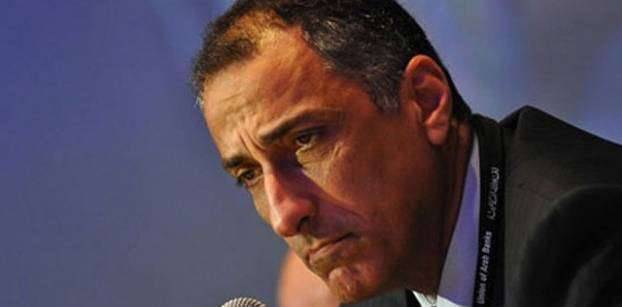Egypt's central bank says not time to float pound, devaluation depends on timing

Central Bank Governor Tarek Amer. Photo from Al-Ahram
By Lin Noueihed and Ehab Farouk
CAIRO (Reuters) - Egypt's central bank governor said on Wednesday that the time was not right to float the Egyptian pound, which has come under intensifying pressure in recent weeks, but he left the door open to a possible devaluation.
Economists say a devaluation is all but inevitable. But the timing is crucial to maximise its impact while mitigating the inflationary effect, particularly as the government plans to introduce value-added tax this year and has yet to complete subsidy reforms.
"It is not possible to discuss the flotation of the pound now ... but a devaluation depends on what the bank sees at the appropriate time," Tarek Amer said in comments carried by the state news agency MENA.
Egypt devalued the pound by almost 14 percent in March, to about 8.78 to the dollar, in a bid to crush a black market that has burgeoned amid an acute shortage of foreign currency.
But the black market rate has since depreciated, putting renewed pressure on the central bank to take more action.
Speculation has mounted that a second devaluation was looming since Amer told local newspapers in early July that it had been a mistake to fix the currency at an artificial rate and his focus was on stimulating the economy.
"Personally, I would not be happy if the exchange rate is stable but factories are halted," Amer told Al Mal newspaper at the time.
On Wednesday, five black market traders said the pound had weakened to below 11.75 to the dollar on the black market, the weakest level in its history. It was trading at close to 11 per dollar before Amer's July 3 comments.
Bankers say they expect the pound to continue weakening on the black market.
"There are no indications of an improvement in the dollar crisis. Everyone is waiting to see what the government and central bank will do," said one banker, speaking on condition of anonymity.
Egypt's last devaluation pushed core inflation to seven-year highs. The central bank has raised interest rates by 250 basis points since mid-March to slow inflation, but this has increased borrowing costs for the government and businesses.
In his latest comments, Amer said the coming period would see greater coordination between monetary and fiscal policies.
The central bank said when it devalued in March that it would pursue a more flexible approach but has since held the pound steady. It also said forex reserves would reach $25 billion this year, a level Amer has said would allow for a more flexible approach.
Egypt's foreign reserves rose to $17.546 billion in June, but remain at half their levels before the 2011 uprising ushered in a period of turmoil that discouraged tourists and foreign investors -- key hard-currency earners.
The shortage has forced the central bank to ration supplies and impose capital controls to preserve scarce dollars for essential goods.
Amer is working with the government to narrow the trade deficit, often blamed for imbalances in the currency market. But exports have fallen this year as factories hit by forex shortages struggle to import components.
(Additional reporting by Ahmed Tolba,; Writing by Lin Noueihed, Editing by Jeremy Gaunt and Larry King)









facebook comments